The Archbishop of Cologne is one of the most important representatives of the Catholic clergy not only in Germany, but worldwide. So it should be all the more sensational when buildings of the Archbishopric of Cologne are searched by the public prosecutor's office. The office is investigating Cardinal Rainer Maria Woelki for suspected perjury. The Bild-Zeitung, Germany's largest daily newspaper, has been in conflict with the Cardinal for some time, accusing him of covering up abuse of minors. Woelki is said to have known more about the abuse than he admitted publicly. In a lawsuit by Woelki against "Bild", Woelki is accused to have lied.
The Archbishop of Cologne and the diocese administration have not cut a good figure in the past. A priest who was known for sexual assaults on minors and was no longer allowed to exercise his office was nevertheless later found preaching in a church in Vienna. The archdiocese was aware that the priest was in the Austrian capital. In another case, Woelki failed to report a priest who had committed sexual violence against children to Rome. When the priest and song writer Winfried Pilz died in 2019, the Archdiocese of Cologne wrote a befitting obituary - although Woelki is said to have been aware as early as 2015 that Pilz was on the list of clergymen suspected of sexual abuse. The staff member who claims to have presented this list in January 2015 stated that the cardinal was not interested in it.
The allegations against Woelki have already had an aftermath. Pope Francis sent two Apostolic Visitators to the Archdiocese of Cologne in June 2021. In September, the pontiff declared that he would leave Woelki in office, but ordered a "spiritual time-out" for Woelki from mid-October 2021 until 1 March 2022. The diocese is nevertheless considered to be internally divided. Besides the Bild-Zeitung, other German media also report critically on the archbishop. And with the public prosecutor's office involved, Francis is also likely to be confronted with the question of whether his decision to let Woelki stay in office was the right one. Cologne's reputation has such reverberations that even the Protestant Church in the Rhineland claims that the negative headlines have led to church departures in its congregation.
Woelki, however, is on the offensive. He not only denies all the accusations, but has also filed charges against unknown persons. In his view, the press had been informed before the raid. "What bothers us is not the raid, but that the information and the date were apparently leaked to the media," said Woelki's lawyer Björn Gercke. According to him, the complaint concerned the violation of official secrets, and the "leak" was to be found in the police. Gercke's position as lawyer is also explosive: the same lawyer was responsible for a report on abuse for the archdiocese of Cologne, which found considerable breaches of duty by "high-ranking officials".
Gercke considers the searches unnecessary not only because everything would have been handed over voluntarily upon request. Instead, the impression of a "pre-judgement" was given to legal laymen – which is why they are defending themselves. This leaves the archbishop with a possible strategy for classifying the incident: A state investigation could be declared as an encroachment on the church domain. The possibility of forming a prelude to a culture war out of the incident would be, in view of the cardinal's severely endangered condition, a way out to gain time - and to sweep one's own possible mistakes under the carpet.
One might wonder whether his strategy will work. But it has its supporters. For Woelki is perceived by quite a few conservative Catholics as a factor in church politics. In Germany, "liberal" bishops who want reforms now dominate. For them, Woelki is a "problem bishop" for these reasons. The abuse cases are therefore suitable ammunition for pushing through their own programme. They abuse the abuse for their agenda.
Woelki, on the other hand, has rejected women's ordination and blessing for homosexuals – both programme points of the "Synodal Way", which the political lay association "Central Committee of German Catholics" wants to advance with liberal bishops. The fact that Woelki only defends Catholic doctrine, while his opponents dream of a German-Catholic Church with its own rules, is resolved in favour of a narrative according to which only the "modern" Catholics know how to put an end to sexual abuse - for example, by abolishing celibacy - while Woelki covers it up.
The Catholic Church in Germany has thus manoeuvred itself into a dead end. For the supposedly "conservative" camp has put itself in an awkward position in terms of personnel; the "liberal" camp, on the other hand, has not received any approval from Rome, but was humiliated personally by Francis during his visit. In the meantime, the bishops also refuse further funding for the "Synodal Way". The idea of faking a reform process with the Synodal Way and thus turning public opinion in favour of the reformers must be considered a failure at all levels, apart from a few eager supporters in the German editorial offices who hope to turn the "Una Sancta" into some NGO in order to be able to sin undisturbed without having to listen to a moral sermon afterwards.
In reality, there is no "conservative" or "liberal" camp in the Church, but a mere ecclesiastical-political division. The name is used for power-oriented and political reasons, in order to conceal the fact that the issue is the speaker’s own influence. In Woelki's case, the goal is to save himself; in the case of his opponents, to link specifically German Catholicism more to associations and authorities than to the faithful or Rome. The aforementioned "Central Committee" is de facto a political association led by its leaders, NGO chairmen and state politicians. It is thus close to Protestantism not only theologically, but also in its view on the connection between the sovereign and the Church.
The abuse, the affairs on the "conservative" side, the failed "Synodal Way" on the other side, have thrown Catholicism into an even greater crisis than it is already experiencing in Germany. In Germany, the Church has long ceased to be a socially relevant force, despite powerful institutions such as Caritas and rich church tax revenues. It only shimmers in the media because of new stories about Cardinal Woelki or obscure moments of the Synodal Way. Catholics now only seek their salvation in flight. More than half a million people left the Catholic Church in 2022. This is a record. Without an Emperor Charles V or a Cajetan, Germany's Catholic Church is in a worse situation than at the time of the Reformation.
Read also
Country Report: Germany, January 2023
Germany's desperate search for geopolitics
Marco Gallina
The nuclear phase-out: The Germans' dogma
Europe is an officially secularised continent. Christianity is seen either as folklore or a disturbing relic. Significantly, the 19th century transformed Western societies in several ways.
Marco Gallina
In the stranglehold of the climate extremists
At the carnival parade in Düsseldorf, one float caught the eye: it showed a member of the climate extremist "Last Generation" fighting a “car monster”. Düsseldorf thus adopted the common narrative of "David against Goliath" and assigned the role of heroes to the extremists - not least because the slogan underneath, "Who's the climate terrorist here?" made it clear that the CO2 guzzlers are responsible, not the activists.
Marco Gallina
How an eco-lobby controls Germany
State secretaries are the real brains of the ministries. As politicians, it is the ministers who are the eye-catchers for the media, who have to make their party-political mark, justify themselves and stand in front of the cameras – there is not much time left to manage the operational business.



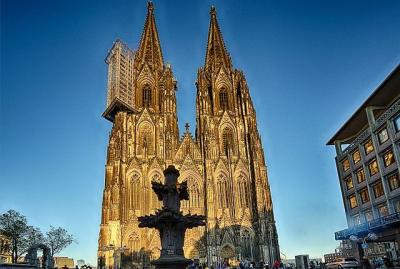

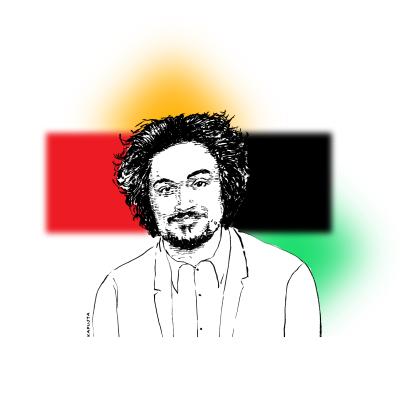
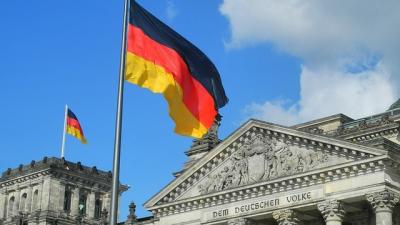

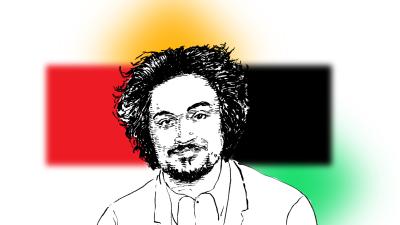

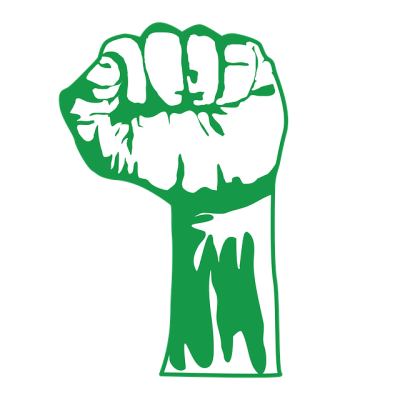

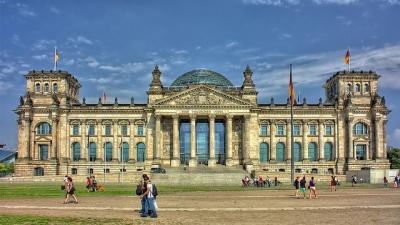

Comments (0)